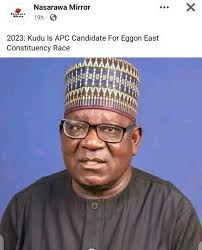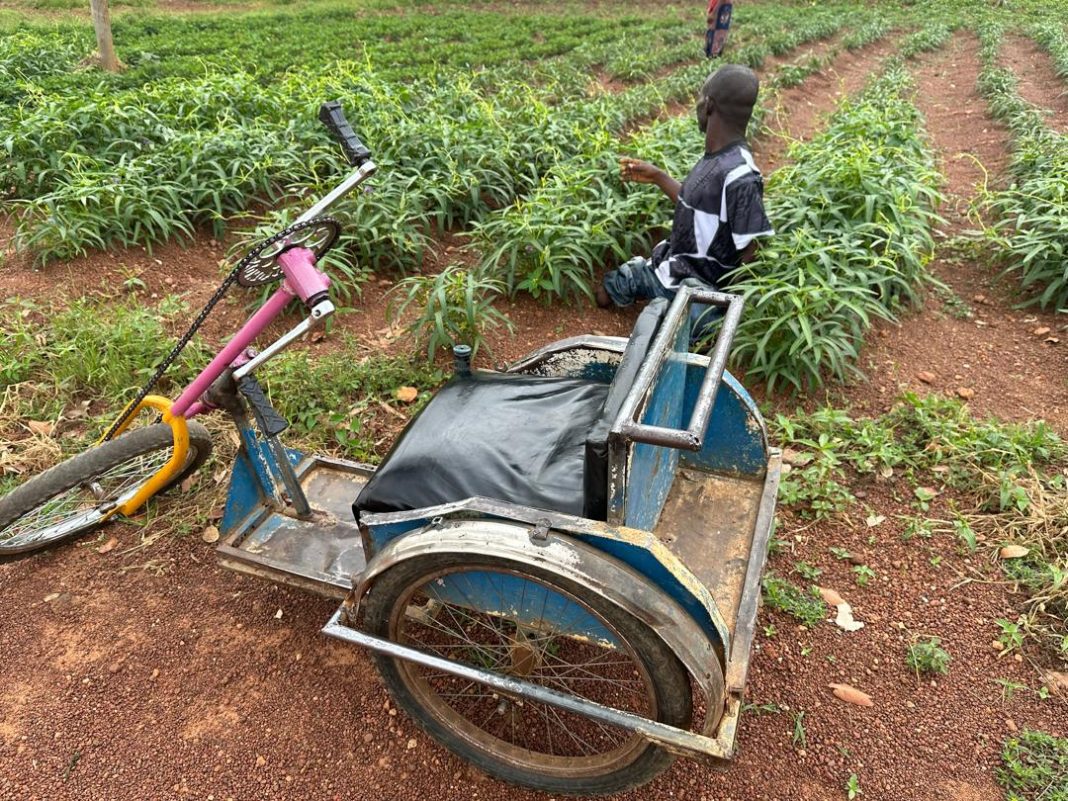After years of political setbacks and quiet but consistent grassroots work, Hon. Jacob Ajegana Kudu has emerged as one of the most impactful lawmakers in Nasarawa State. Representing Nasarawa Eggon East Constituency in the State House of Assembly, Kudu’s journey—from losing primaries and defecting to a smaller party, to returning and winning under the APC in 2023, and delivering critical projects—tells a compelling story of perseverance, people-focused leadership, and silent transformation. In this exclusive interview, he reflects on the road traveled, his achievements so far, and what lies ahead for his people.
Q: Hon. Kudu, can you take us back to your early political journey and how it all started?
A: Thank you. My political journey formally began around 2014 when I joined the All Progressives Congress (APC). I had always been passionate about community development and believed that public office could be used to uplift the lives of ordinary people. I served as a Special Assistant to the then-Governor of Nasarawa State, His Excellency Tanko Al-Makura. That experience gave me a firsthand look into governance and public service. It inspired me to contest for elective office so I could directly represent my people.
Q: You contested for the Nasarawa Eggon East seat in 2018 but lost. What happened during that period?
A: Yes, I contested the APC primaries in October 2018 for the Nasarawa Eggon East House of Assembly seat. I ran against Hon. Mohammed Aggah Muluku, who was seeking a third term. Unfortunately, I lost the primary. I secured 31 votes, while Muluku got 168. What made the experience difficult for me wasn’t just the loss but the irregularities I observed during the process. The delegates’ list was not published as required. There were reports of intimidation and manipulation. I raised these issues publicly and even called for a re-run.
Q: You resigned from APC after that loss. What led to that decision?
A: I believed that the process was fundamentally flawed, and I could no longer find fairness within the party at that time. On November 2, 2018, I formally resigned from the APC. I didn’t do it out of anger but on principle. I needed a platform where internal democracy was respected.
Q: And then you joined the African Democratic Congress (ADC)?
A: Correct. I joined the ADC later that year and contested under its platform in the 2019 elections. It was a period of reflection and community engagement. Even though I didn’t win, I used the opportunity to connect more deeply with my constituents. I also embarked on several empowerment initiatives, especially for widows, orphans, and youths. I distributed items like sewing machines, Keke NAPEPs, and also supported the education of indigent students.
Q: When did you return to APC, and why?
A: After careful consideration and consultations with my supporters and political leaders, I decided to return to the APC. I realized that while every political platform has its challenges, the APC remained the most viable vehicle to actualize my vision for the people of Nasarawa Eggon East. I rejoined before the 2023 elections and picked up the nomination form to contest again.
Q: In 2023, you finally won. How did that feel?
A: It was a humbling and fulfilling moment. The election was held on March 18, 2023, and I won with 11,114 votes, defeating my closest rival from the PDP who scored 10,580 votes. It was a tight race, but the people spoke. Their faith in me was reaffirming. I was even more grateful when my victory was later challenged and upheld by both the tribunal and the Appeal Court.
Q: Let’s talk about your achievements so far. What would you say are your most significant impacts in the constituency in the last two years?
A: First, I prioritized access to clean water, which was a major issue across the 152 polling units I visited during my campaigns. In April 2024, I commissioned one of the best motorised boreholes in Alizaga Ward and seven others. I’ve also pledged to support the construction of a mini-dam to ensure water availability during the dry season.
In the area of health, I have assisted many constituents facing life-threatening medical conditions with financial support amounting to millions of naira. These were not publicized acts, but lives were saved.
Employment is another area. Through lobbying and networks, I facilitated jobs for several youths in both government and private institutions. I’ve also provided grants and soft loans to young entrepreneurs and women, helping them to start or expand their businesses.
Q: What about education and infrastructure?
A: Education remains a priority. I’ve initiated discussions with stakeholders to improve school facilities and learning conditions. We are working to attract both state and NGO interventions to support the education sector. As for infrastructure, I emphasized sustainable and impactful projects—ones that stand the test of time rather than politically expedient gestures.
Q: Some critics say you’re too quiet and not visible like others. What’s your response to that?
A: (Laughs) I believe in silent impact. My focus has never been on media attention. I want the results to speak for themselves. When you see a borehole where people used to trek kilometres for water, or a youth who was jobless now meaningfully engaged, that’s the kind of visibility that matters to me.
Q: How would you describe your relationship with your constituents?
A: Very cordial. I maintain an open-door policy. My constituency office is always accessible. I constantly engage with traditional leaders, youth groups, market women, and religious bodies to understand their needs. That’s how I shape my interventions—based on direct feedback.
Q: Do you feel vindicated considering your earlier losses and the political battles you’ve faced?
A: Absolutely. The journey has taught me patience, humility, and perseverance. Sometimes, failure is not a denial but a delay. What matters is staying true to one’s values. I never lost hope, and I’m glad the people eventually gave me the mandate.
Q: What message do you have for your critics and supporters alike?
A: To my critics, I appreciate you for keeping me on my toes. Constructive criticism helps one grow. To my supporters, I say thank you for your belief in me. I urge everyone to continue praying for me and holding me accountable. This is our mandate together.
Q: What should your constituents expect from you moving forward?
A: More strategic interventions—especially in healthcare, youth empowerment, and education. I am exploring partnerships with NGOs and private sector actors to attract development to our constituency. My goal is to leave a legacy of service, integrity, and impact.





